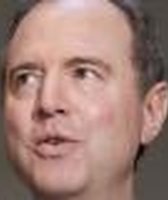Stand up for the facts!
Our only agenda is to publish the truth so you can be an informed participant in democracy.
We need your help.
I would like to contribute
It wasn’t even an election year this year, but the battle over voting raged on in 2013.
Democrats say Republicans are using voter suppression to target minorities, young people, workers and others with restrictive rules on voter registration and polling hours. Republicans say they want to prevent voter fraud.
In June, the U.S. Supreme Court struck down a key provision of the Voting Rights Act that required the federal government to approve state’s changes to voting laws primarily in the South.
That led state Legislatures to enact some controversial changes to voting laws. According to the League of Women Voters, nearly 4,000 election-related bills were introduced in state legislatures about everything from early voting hours to voter ID.
Here’s a look back at some of our fact-checks about voting rights.
Sign up for PolitiFact texts
Noncitizen voters, newly legalized immigrants and voter fraud
U.S. Rep. Michele Bachmann, R-Minn., raised red flags in a July interview about a Senate-passed bill that allows a pathway to citizenship for illegal immigrants. Bachmann claimed that as soon as illegal immigrants become voters, they will vote for Democrats and that the GOP could lose the House.
"Because, I think the president, even by executive order, could again wave his magic wand before 2014 and he’d say, ‘Now, all of the new legal Americans are going to have voting rights,’
The Constitution says the states -- not the president or Congress -- determine who can vote for the House, Senate and presidency. We rated her claim Pants on Fire!
In Florida, Secretary of State Ken Detzner led an effort to purge noncitizens from the voting rolls in advance of the 2012 presidential election. The state initially used drivers’ license data, which turned out to be an outdated source of citizenship status. Election supervisors criticized the process and the project was scrapped shortly before the election.
In 2013, Detzner announced that he would launch a new search for noncitizens, but this time would rely on databases from the federal government known as Systematic Alien Verification for Entitlements, or SAVE.
As Detzner traveled the state explaining his revamped process, the League of Women Voters in Florida warned against using SAVE: "The U.S. Department of Homeland Security has already warned that this database is not a foolproof means of verifying the voter rolls." A Homeland Security fact sheet didn't literally use the word "foolproof," but that was the clear message the feds tried to communicate when they explained that SAVE is intended to show if someone is not a U.S. citizen. In other words, it’s not a database that affirms that someone is a citizen. We rated the statement from the League of Women Voters True.
In a legislative hearing in November, Detzner made another claim about the SAVE, specifically that using it to check voter status was one of the databases "main functions." Government agencies can use SAVE to check voter registration, but we found no evidence to support the claim that it was one of the main functions. In fact, voter registration queries equaled less than 1 percent of the searches for fiscal year 2013. We rated Detzner’s claim False
In August, a few months before he announced his candidacy for governor as a Democrat, former Gov. Charlie Crist said "the secretary of state put together a list of over 100,000 people that they thought were ineligible to vote. Came out there were less than 10."
The best data we could nail down from the state was that there were about 85 noncitizens removed as of August 1, 2012. That’s still a relatively small number, but it’s hardly less than 10. We rated his claim Mostly False.
Voting Rights Act and the Constitution
During oral arguments about the Voting Rights Act before the U.S. Supreme Court in February, Chief Justice John Roberts asked, "Do you know which state has the worst ratio of white voter turnout to African-American voter turnout? Massachusetts. Do you know what has the best, where African-American turnout actually exceeds white turnout? Mississippi."
The survey data Roberts likely used about Massachusetts is questionable due to wide margins of error, among other problems. Also Roberts’ decision to hold up Massachusetts as an example amounts to cherry-picking, since its data diverges significantly from that of its regional neighbors.
However, Roberts made a valid point when he noted that black voter turnout in Mississippi and other Deep South states is high, and often exceeds white turnout. We rated his claim Half True.
We looked at a claim about how the Constitution addresses voting that came from U.S. Rep. Mark Pocan, D-Madison, who has proposed to amend the Constitution to guarantee the right to vote.
"While the right to vote is inherent throughout our founding document, and there are amendments prohibiting discrimination, nothing in the Constitution explicitly guarantees our right to vote," Pocan said. Constitutional experts agreed that there is nothing in the Constitution that "explicitly guarantees" our right to vote, though there are amendments that seem to suggest aright to vote. We rated his claim True.
Restoration of felons’ voting rights
In Florida, Crist plans to run against Republican Gov. Rick Scott in 2014, and ballot access is already a topic in the race.
Dan Gelber, a Crist supporter and a former Florida House Democratic leader, praised Crist’s record as governor for helping felons restore their civil rights, which includes the right to vote.
Gelber wrote that Crist "sought for and got approved the automatic restoration of felon rights for nonviolent offenders for the first time in Florida history (since reversed by Governor Scott)."
Crist did lead an effort to make it easier for ex-felons to vote in 2007. But Gelber forgot that Gov. Reubin Askew got approval for automatic restoration in 1975, so we rated this claim False.
PolitiFact Virginia looked at whether Attorney General Ken Cuccinelli, the Republican who lost the Virginia governor’s race, changed his views about restoring civil rights for felons. As a state senator, Cuccinelli repeatedly opposed measures to allow Virginians to vote on a constitutional amendment that would have empowered the General Assembly to automatically restore voting rights to nonviolent felons. But this year he called on Virginia to make it easier for non-violent felons to regain voting rights. PolitiFact Virginia rated his stance a Full Flop on our Flip-O-Meter.
Voter ID
President Barack Obama said in his Feb. 12, 2013, State of the Union address that he wanted a commission to focus on protecting the right to vote.
Republican Greg Abbott, the Texas attorney general, responded on Twitter that night: "To #Obama: The last non-partisan commission to improve the voting experience in America concluded that #VoterID was necessary." (Abbott is running for Texas governor in 2014.)
A commission co-chaired by former President Jimmy Carter, a Democrat, and former U.S. Secretary of State James A. Baker, III, a Republican, released a report in 2005 that recommended that states require citizens to present ID cards to vote. We rated this claim True.
In October, an email blast from the Democratic Governors’ Association said "BREAKING: Texas Governor Rick Perry’s voter ID law is a blatant effort to defeat Wendy Davis by disenfranchising tens of thousands of women voters." The ID proposal became law two years before Davis emerged as a serious gubernatorial prospect. The claim lacked proof that the the Texas law was intended to disenfranchise tens of thousands of women or had such an immediate effect. PolitiFact Texas rated this claim Pants on Fire!
The Texas law cleared the Legislature in 2011 but was implemented for the first time in 2013.
On the eve of the November 2013 election, Abbott made this claim about Texas’ voter ID law: "I haven't ever seen anything that was overhyped as much as some partisan efforts to overhype concerns about this when, in reality, there has been no problems whatsoever."
But news stories revealed various if rare experiences that could be construed as problems, such as voters having to scramble to get the proper ID. There also was a surge in provisional (largely uncounted) ballots, though it was not clear whether voter ID was to blame for that. We rated his claim Mostly False.
U.S. Rep. Eddie Bernice Johnson, D-Texas, said in an opinion column in August that "Studies have shown that voter fraud is nonexistent in Texas." Abbott’s records show 18 convictions, "no contest" pleas or guilty pleas on voter fraud charges from 2002 through 2012. We rated her statement False.
In Rhode Island, James Vincent, president of the Providence chapter of the NAACP, said in a TV interview in August: "I think there's 24 states that have voting IDs or some form of restrictions in terms of who can vote and who can't vote, and I think before President Obama was elected, I think it was two." Vincent was close on his first number, but he got the second number wrong. At least seven states were demanding or asking for a photo ID for the 2008 election that put Obama in office. We rate his statement Half True.
Support for North Carolina’s voter law
In North Carolina, a voting law passed with strong Republican support, but it drew weekly protests at the Capitol known as "Moral Mondays."
Among other things, the measure required voters to show government-issued IDs at the polls, shortened the early voting period, ended same-day voter registration, and ended provisional ballots for voters who go to the wrong precinct.
In a November interview on MSNBC, Gov. Pat McGrory said polls showed most Democrats agreed with the law and voter ID. We found that while a majority of North Carolina Democrats were comfortable with a voter ID law for many months, that support turned to disapproval, beginning no later than September 2013 and possibly as early as February 2013, depending on the poll. The one poll that asked about the law as a whole found strong opposition among Democrats, to a degree that was well outside the margin of error. We rated this claim Mostly False.
Spot a claim about voting rights or any other topic that warrants a fact-check? Tweet us at #PolitiFactThis or email us at truthometer@politifact.com
Our Sources
League of Women Voters, "2013 A watershed year for voting rights," Dec. 12, 2013
See individual fact-checks for additional sources






































